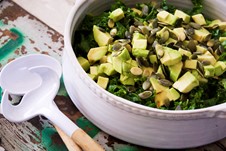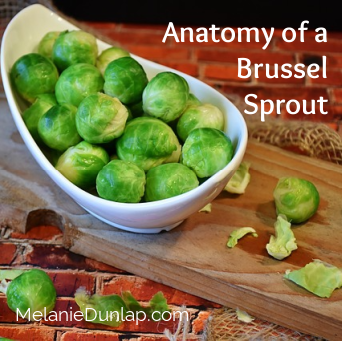You may remember Brussels sprouts as those small, round veggies that ended up on your plate as a child. Like most children, you probably didn’t want to eat them or cringed at the way they smelled while cooking. Despite these little drawbacks, however, they were put on your plate for good reason: they’re actually one of the world’s healthiest foods, making them a diet necessity.
Those little veggies that look like mini-cabbages more than anything are packed with vitamins and minerals that can do wonders for your body and your immune system. Not only are they highly nutritious, but they’re also extremely versatile and can be prepared in a number of different ways. This means you have a variety of options for how to add them to your diet, so you won’t ever get bored with these perfectly crafted vegetables made by nature with the utmost care.
What Are Brussels Sprouts?
Brussels sprouts don’t just look like mini-cabbages; they’re actually members of the Gemmifera Group of cabbages. These cabbages are grown for their edible buds and may have gotten their name from Brussels, Belgium, where they are believed to have originated and are highly popular. Ancestors of the modern Brussels sprout were most likely cultivated in ancient Rome, but the sprouts we know and love today were likely grown as early as the 13th century in Belgium. A small, leafy vegetable, Brussels sprouts are packed with protein, vitamins, fiber and many more nutrients.
A staple of Belgium for many years, Brussels sprouts have found popularity due to their high nutritional value and versatility in the kitchen.
Nutritional Value And Health Benefits
No matter how they come, Brussels sprouts can offer you an excellent source of nutrients. Packed with good things from the earth and nature, these vegetables are perfectly crafted for maintain health and wellness. When raw, Brussels sprouts are an excellent source of vitamin C and K and contain good amounts of B vitamins such as vitamin B6, folic acids, and other essential minerals. They are also a good source of protein and dietary fiber and contain absolutely no cholesterol. Like cabbages, they may cause an overactive bowel if eaten too much, so it is important to eat them in moderation. More than making you extra-regular, they can also cause gas and bloating if eaten too much.
Brussels sprouts are also a great source of vitamin A, which is an antioxidant required for maintaining healthy mucus membranes, skin, and promoting optimal eye health. Foods and veggies rich with vitamin A have been known to offer protection against some cancers such as oral cavity and lung cancer. The extent of cancer-protection in Brussels sprouts is still widely researched, but promising findings hint that this veggie helps fight cancer causing agents and cleanses the body of many toxins.
Brussels sprouts are also one of the leading veggie sources of vitamin K, which is best for bone health and preventing diseases and disorders of the bones such as osteoporosis. In addition to these nutrients, Brussels sprouts are an excellent source of the following minerals: copper, iron, manganese, calcium, potassium, and phosphorus.
Unlike some grains and other plant-based foods, Brussels sprouts are not necessarily used for specific problems. This is because they are so rich in vitamin and minerals—they are simply a highly nutritious addition to any diet.
As already mentioned, Brussels sprouts help with a number of health problems and provide the body with the support it needs to build strong bones, remove toxins and cancer-causing radicals and agents, regulate metabolism, promote strong muscles, oxygenate the blood, and do much, much more. These superfoods are a do-it-all veggie that promotes optimal health and wellbeing.
How They’re Prepared
Adding Brussels sprouts to your diet is incredibly easy because they can be prepared so many different ways. Oven roasted Brussels sprouts; stir-fried, baked, shredded sprouts, parmesan sprouts, breaded, and raw sprouts are just a few ways to prepare these veggies. There are many oven roasted recipes that can be made with crumbled bacon, onion and fresh garlic.
They can also be added to soups, salads, casseroles, pasta dishes, vegetable loafs, and used as garnish around poultry and fish. There’s truly no right or wrong way to make these, so simply find a recipe that intrigues you and get cooking!
Created By Nature, Made for You
Though Brussels sprouts may have gotten a bad reputation when you were a child, you can now look at them with new eyes. These little vegetables are wholly good for you with only benefits for your body and wellbeing. When eaten in moderation, these beauties will keep you regular, have you feeling great, and inspire you to create a healthy diet around them and their health benefits. Mom always said, eat your vegetables, and she was right!
Brussels Sprouts with Pistachios and Lemon
[Serves 6]

INGREDIENTS
3 tablespoons extra virgin olive oil
1 cup shelled pistachios
Zest and juice from one lemon
24 large brussels sprouts, leaves separated from the core. Cut the end of the sprout off and peel leaves off.
Salt and pepper to taste
Heat oil in a large wok or skillet over medium – high heat. Add pistachios and lemon zest and sauté for one minute. Add brussels leaves and toss until bright green but still crisp, about 5 minutes. Squeeze lemon juice over the leaves and season with salt and pepper.
